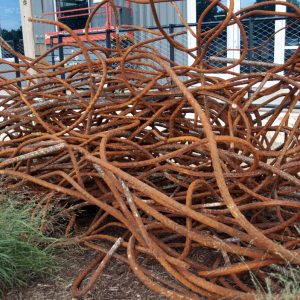History
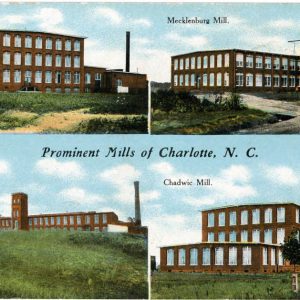
Historical Overview Part 2: Post-Civil War, the region becomes an industrial system
From an agrarian system to an economy based on rural mills and factories drawing workers from former farms and sending goods to Charlotte for distribution, the region undergoes rapid change.

Historical Overview Part 3: The rise of banking builds a globally connected region
While Duke was building the world’s largest electrical network in the Western Piedmont, some Charlotte mill owners recognized that more money could be made loaning money to aspiring industrialists than making cloth themselves.

Historical Overview Part 1: The early development of a connected region
Charlotte and the surrounding counties have changed dramatically over the past 250 years, evolving from an agrarian backwater to a manufacturing powerhouse to a hub of global finance. Our first European settlers’ hope was to support themselves by working the land, but 100 years of agriculture showed our predecessors that local farming was much more […]
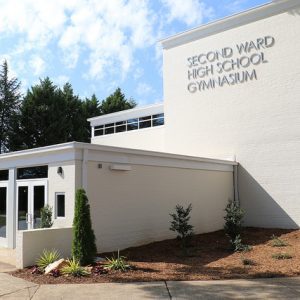
Five 2019 Historic Preservation Awards winners announced in Charlotte
Charlotteans often lament how many old buildings here have been torn down, but there are still structures worth saving, along with groups and developers willing to put in the work.
On Thursday, the Charlotte Museum of History announced the winners of its 2019 Historic Preservation Awards. The five honorees, from 27 nominations, include a historic high school gym, a hip, repurposed mill, and historic houses.
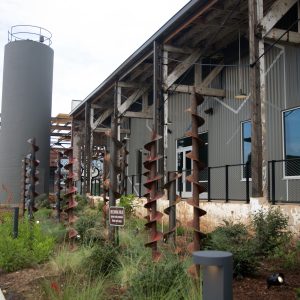
Blending the old and the new at Camp North End
The cluster of old factory buildings, warehouses, missile assembly and munition storage facilities just north of uptown have long glimmered with possibility – if you could look beyond the dingy facades and faded, rusty interiors. Now, more of that possibility is becoming a reality at Camp North End, on a nearly 80-acre triangle of land […]
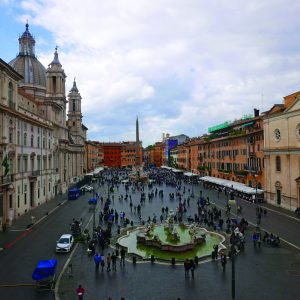
Why do old places matter? A Mecklenburg native explores the question.
Reading the essays in Tom Mayes’ book, Why Old Places Matter: How Historic Places Affect Our Identity and Well-Being, one comes away with the sense that he’s not only seeking to understand the innate pull of old places that compels us to protect our historic fabric, but also appealing to a new generation of preservationists […]
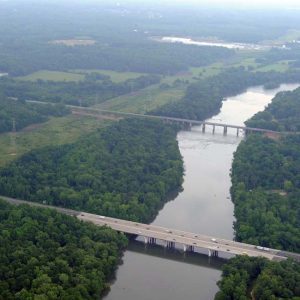
Why isn’t Charlotte built on the water?
After visiting a city with a waterfront, maybe stopping for a drink and a bite to eat along whichever river or ocean it’s built along, I’m usually left with one overriding thought: “Wow, Charlotte could really use some of this.” Water plays a prominent role in the design and history of most cities, whether it be a river, bay or ocean. And Charlotte’s skyline and downtown sit tantalizingly close-but-yet-so-far from a major river and lake system. So, the question looms: Why isn’t Charlotte built on the water?

Review: In ‘A Delicious Country,’ an author rediscovers the Carolinas
Author Scott Huler will be interviewed on the “Charlotte Readers” live podcast at 3 p.m. Saturday, July 27, at the Charlotte Museum of History. The event is free and open to the public. More information is available here. Earlier that day, 11 a.m.-2 p.m., the museum will host a free symposium showcasing research by museum […]
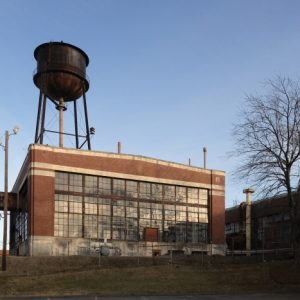
Should Charlotte do more to preserve its history?
There’s been a lot of talk lately in Charlotte about the value of older buildings and what we should do to save them, spurred by the Excelsior Club’s possible sale and demolition. For a fast-growing city with leaders who have long been spurred by the promise of more development and an ever-bigger, ever-shinier skyline, it […]
